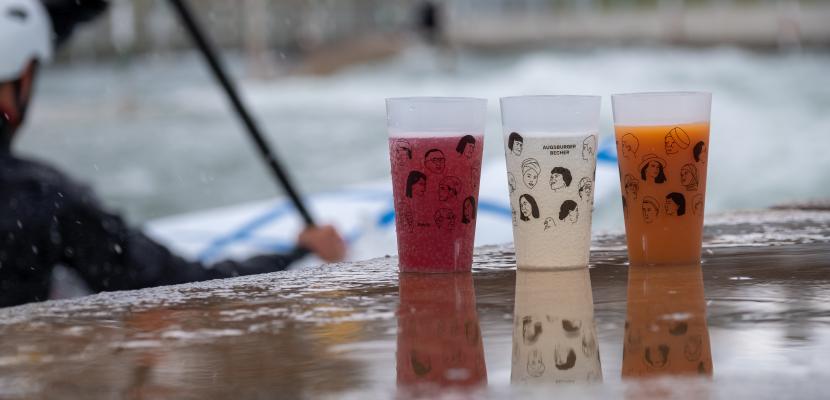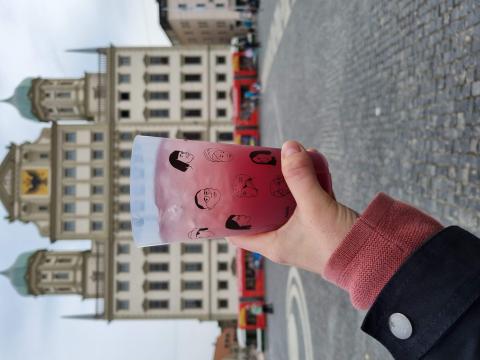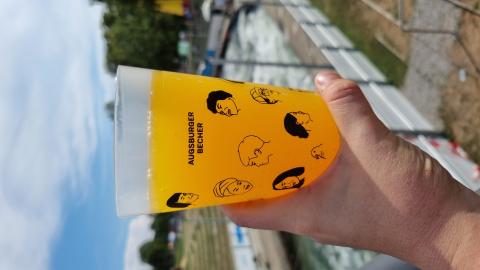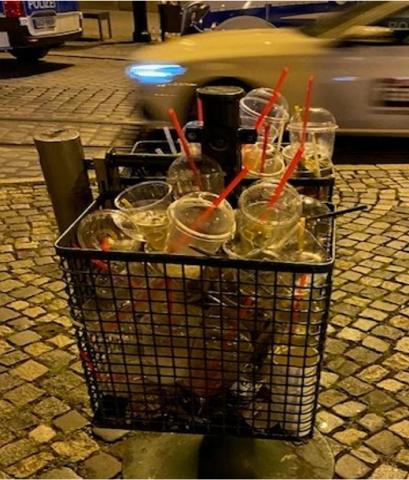
Augsburg Cup - Reusable To-Go Cup

About this good practice
In 2018, a public waste bin analysis was conducted by the municipal waste management company (AWS) in the city of Augsburg. The results of this analysis revealed that approximately 1/4 of the waste consisted of plastic, with a significant portion being disposable to-go beverage cups. Due to the impact of COVID-19 and the restrictions on restaurant visits, the consumption of to-go cold drinks increased, leading to more waste. As part of the reGIOcycle project (funded by BMBF), researchers developed the Augsburg Cup, a reusable cup designed specifically for Augsburg's bars. The cup was developed in collaboration with the gastronomy sector, meeting various requirements such as transparency, food-grade safety, easy identification without a deposit mark, and recyclability.
It is not only available in the city center but also utilized at municipal festivals such as MODULAR, and is being lent out to an increasing number of gastronomers and events. Currently, the cup is funded by subsidies, allowing gastronomers to acquire it free of charge, with only a €2 deposit fee.
An accompanying LCA revealed that after just 5 cycles of use, the cup emits the same amount of CO2 as a conventional disposable PET cup. However, the Augsburg Cup can be reused up to 300 times and, through the deposit system, it is consistently returned, enabling recycling. In contrast, a disposable cup ends up in residual waste and is incinerated, thus lacking the recycling potential.
Expert opinion
Resources needed
The human resources required for developing the cup, keeping the system running, and conducting the LCA were financed through project funds (BMBF-reGIOcycle). The initial 35,000 cups were funded by AWS and the city of Augsburg. An additional 15,000 bio-based cups are financed through project funds.
Evidence of success
The cup had its first successful deployment at the Augsburg Canoe Slalom WCS in 2022. With an attendance of around 33,000 people, it is estimated that over 30,000 single-use plastic cups were prevented. In a survey conducted among event attendees, 93% expressed that they found the cup and its reusability to be excellent. A large majority of 86% also strongly supported the cup's continued use in the city center, events, and sports competitions.
Potential for learning or transfer
In the development of the Augsburg Cup, a deposit cup, special attention was paid to ensuring high transferability to other municipalities, particularly because the project was funded by the Federal Ministry of Education and Research (BMBF) in the context of urban-rural relations. Such a regional deposit system could be easily implemented in any municipality. It simply requires financial resources for procuring the cups and the necessary human capacity to manage promotion and distribution of the cups.
Further information
Good practice owner
You can contact the good practice owner below for more detailed information.




